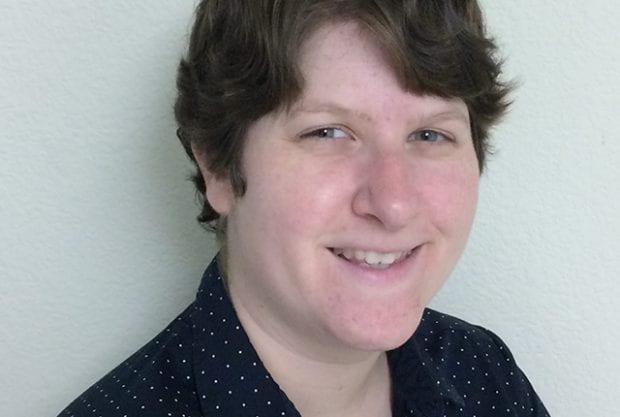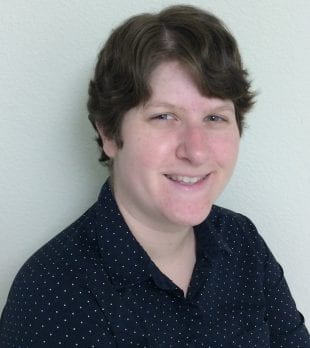The little things of life mean a great deal to Julea Vlassakis, who will bring her study of protein complexes and their role in cancer proliferation to Rice University this year.
Vlassakis will join the Department of Bioengineering faculty as an assistant professor this summer with the support of a $2 million grant by the Cancer Prevention and Research Institute of Texas (CPRIT).
The grant to recruit Vlassakis, who earned her doctorate and has worked as a postdoctoral researcher at the University of California, Berkeley, since 2018, is part of $69 million in funding announced in May.
Vlassakis has spent the last few years developing novel methods to detect protein complexes from single cells using precision microfluidic devices as part of the lab of Berkeley bioengineer Amy Herr.
“My work in the Herr lab has focused on designing tools that allow us to look at the composition of individual cells and protein interactions that carry out the vast functions and give structure to the cell,” she said. “We found ways to preserve those complexes and to use microdevices to isolate and quantify them. It’s really exciting to be able to see the composition of individual cells.
“Going forward at Rice, I want to pinpoint the protein interactions that drive cancer progression and metastasis,” said Vlassakis, who will be based at the BioScience Research Collaborative. “I’m definitely excited about collaborations with the Texas Medical Center, where we’ll focus on fusion oncoprotein-driven pediatric cancer.”
She said certain cancers, including the bone and connective tissue cancer Ewing sarcoma, are driven by single mutations that result in the fusion of domains from two proteins. “They give cells vastly different functions, and the ability to proliferate or metastasize,” Vlassakis said. “We want to use our tools to look at these rogue cells with distinct metastatic or drug-resistant states to discern what’s different and find new ways to target and treat those particular cancers.
“I’m really passionate about bringing new targeted and precision medicine to these pediatric and young adult cancers that have stagnated in terms of treatments,” she said. “Patients endure combination chemotherapy and really aggressive surgeries and radiotherapy. If we can understand the sets of molecular interactions that are unique to these cancers, it will give us new biomarkers to go after with conjugates or other protein-based therapies.
“But first, we have to know what the biomarkers are, and if they are driving a recurrence of cancer because the cells possessing such interactions weren’t knocked out in the initial line of treatment,” Vlassakis said. “That’s where single-cell resolution comes in handy.”
She said she was drawn to Rice for its collaborative tradition inside and outside the university.
“I was obviously blown away by the research opportunities in collaboration with MD Anderson (Cancer Center), Texas Children's Hospital and Baylor (College of Medicine),” Vlassakis said. “I really was looking for a place that would encourage that sort of collaborative spirit. And Rice is absolutely that place.”
Mentoring students is important to Vlassakis as well. “One of the great honors of what we get to do in science is to train the next generation of researchers,” she said.


